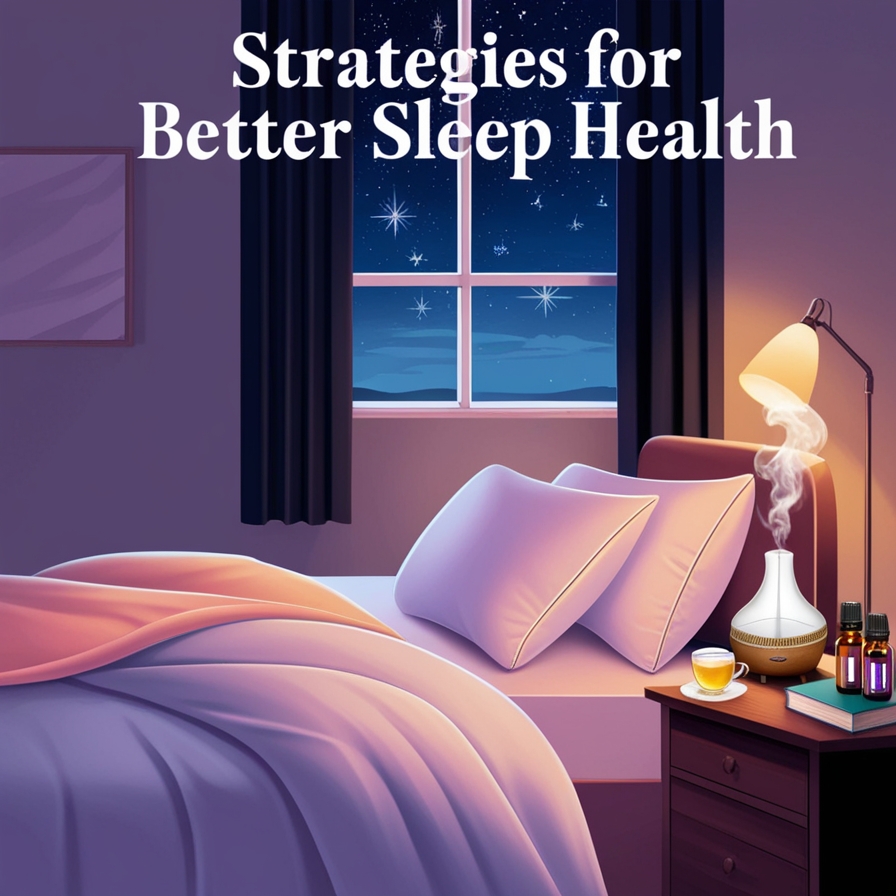Insomnia, the inability to fall asleep or stay asleep, affects millions of people worldwide, poor sleep health can impact physical and mental well-being, productivity, and overall quality of life, if you are struggling with sleepless nights, this guide offers practical strategies to help you manage insomnia and improve your sleep health.
Understanding Insomnia
Insomnia is a common sleep disorder that can be short term (acute) or long-term (chronic)
- Acute insomnia. Lasts for a few days or weeks, often triggered by stress, illness, or major life events.
- Chronic insomnia. Occurs at least three times a week and persists for three months or more.
Common Causes of Insomnia
Stress and Anxiety
- Worries about work, relationships, or health can keep the mind racing at night.
Poor Sleep Habits
- Irregular sleep schedules, excessive screen time before bed, or an uncomfortable sleeping environment can disrupt sleep.
Diet and Lifestyle
- Consuming caffeine or heavy meals close to bedtime can interfere with sleep.
Medical Conditions
- Conditions such as chronic pain, sleep apnea, or restless legs syndrome can contribute to insomnia.
Medications
- Certain medications, like stimulants or antidepressants, may affect sleep patterns.
Strategies to Manage Insomnia and Improve Sleep Health
1. Create a Sleep-Friendly Environment
- Keep your bedroom cool, dark, and quiet.
- Invest in a comfortable mattress and pillows.
- Use blackout curtains or an eye mask to block light.
- Consider white noise machines to drown out distracting sounds.
2. Establish a Consistent Sleep Schedule
- Go to bed and wake up at the same time every day, even on weekends.
- This helps regulate your body’s internal clock, making it easier to fall asleep.
3. Develop a Relaxing Bedtime Routine
- Engage in calming activities before bed, such as reading, meditating, or taking a warm bath.
- Avoid stimulating activities like watching TV or scrolling through your phone.
4. Manage Stress and Anxiety
- Practice relaxation techniques like deep breathing, yoga, or mindfulness meditation.
- Write down your worries in a journal to clear your mind before bed.
5. Watch Your Diet
- Limit caffeine and nicotine intake, especially in the afternoon and evening.
- Avoid heavy or spicy meals close to bedtime.
- Go for light, sleep-promoting snacks like bananas, almonds, or a warm glass of milk.
6. Limit Screen Time
- Reduce exposure to blue light from phones, tablets, and computers at least an hour before bed.
- If screen use is necessary, use blue light-blocking glasses or enable the device’s night mode.
7. Stay Active During the Day
- Regular physical activity can promote better sleep, but avoid vigorous exercise within three hours of bedtime.
8. Avoid Napping
- If you must nap, limit it to 20–30 minutes early in the day, long or late naps can disrupt nighttime sleep.
9. Use Bed Only for Sleep
- Avoid working, eating, or watching TV in bed. This trains your brain to associate your bed with rest.
10. Seek Professional Help When Necessary
- If insomnia persists, consult a healthcare provider or sleep specialist, they may recommend cognitive behavioral therapy for insomnia (CBT-I) medications, or further evaluation for underlying conditions.
Natural Sleep Aids to Consider
Some people find relief from natural remedies, such as.
- Herbal teas. Chamomile or valerian root tea can promote relaxation.
- Essential oils. Lavender or peppermint oil used in diffusers or sprays may enhance calmness.
- Melatonin supplements. Help regulate sleep-wake cycles but should be used under medical supervision.
The Importance of Quality Sleep
Good sleep health goes beyond avoiding insomnia, it improves mood, cognitive function, immune health, and overall quality of life, prioritizing sleep is an investment in your physical and mental well-being.
Final Thoughts
Managing insomnia requires patience and consistency, by adopting healthy sleep habits, creating a conducive environment, and addressing underlying issues, you can regain restful nights and improved overall health.
Have you found strategies that work well for managing insomnia? share your tips in the comments section below, and let’s help each other achieve better sleep health.

